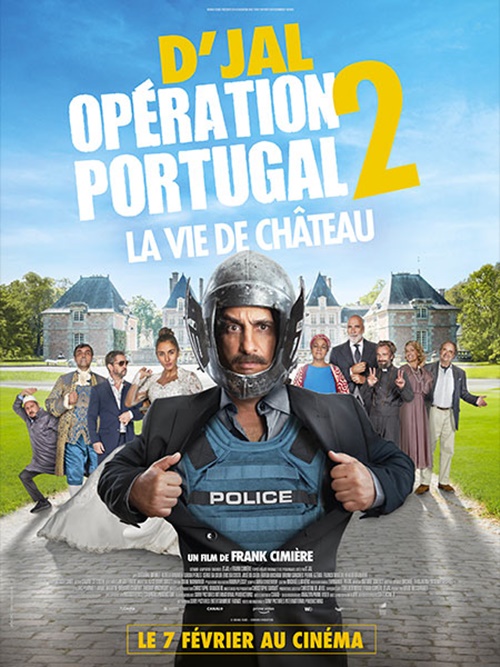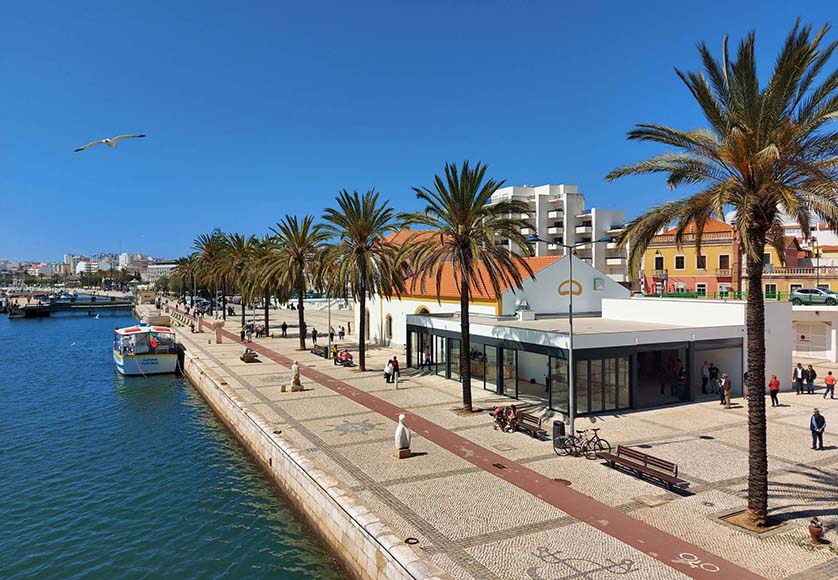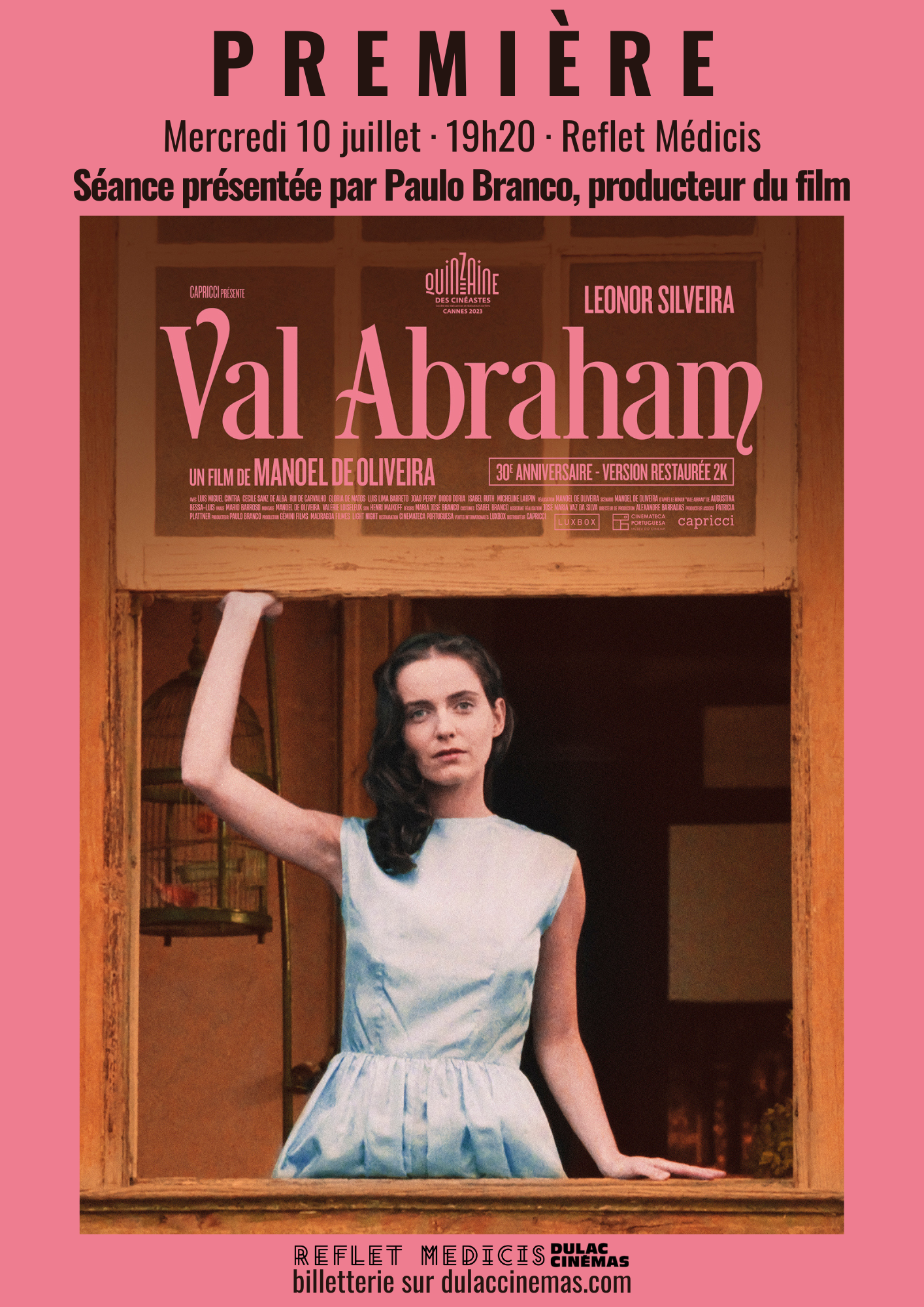
Portuguese director Manuel de Oliveira, the world's greatest film director, died on Thursday at the age of 106, and his death aroused great emotions in political and cultural circles.
His death was announced to AFP by his producer, Luis Urbano. The director died at his home in Porto, his hometown, according to local media.
In testimony to his inexhaustible “hunger for living and photography,” the director was keen to celebrate his 106th birthday with his fans at the end of last year, on the occasion of the release of his latest film in Portugal. The old man of Restello.
Despite his fragile health, he directed this short film, which he described as “a reflection of humanity,” in the spring of 2014.
Manuel de Oliveira carried the intensity of his view of the human condition to the end, always questioning the meaning of life.
He had to wait a very long time to obtain funding for his latest project, in the context of the strict budget constraints of Portuguese Seventh Art.
The title of this film is inspired by a character who is a kind of prophet of shame in the epic poem Lusiadwritten by Luís de Camões in the 16th century to narrate the great maritime discoveries of Portuguese navigators.
Demanding
Oliveira was born on 11 December 1908 in Porto, a large city in northern Portugal, but was registered in the civil registry only the next day, the last survivor of the “good old days of silent cinema” which he continued to recall with nostalgia.
He produced most of his works in his sixties, and became known to the general public after his eighties.
The son of an industrialist who took him to see films of Charlie Chaplin and Max Linder and gave him his first camera, Manuel de Oliveira, an accomplished athlete, pole vault champion and car racer, began acting at the age of twenty. In a silent movie, The amazing Fatima.
In 1931, he made the first documentary – always silent – Douro, river workabout the life of workers on the river that floods his hometown.
Actor in the first Portuguese-language film, Lisbon songIn 1933, directing was what primarily interested him, and after several documentaries he ventured into the world of fiction in 1942, with Aneke Boboabout the lives of children in a working-class neighborhood in Porto.
But the political and cultural context in Portugal, led by dictator Salazar, kept him away from the cameras. He runs the textile factory he inherited from his father and maintains the family vineyards. His second feature film was not released until 1963. The secret of springEvoking the Passion of Christ.
Since 1971, Oliveira has embarked on a quartet called He loves frustratedand acquired the “demanding director” image he imposed in 1985 with the release of the blockbuster film Satin shoesa nearly seven-hour-long fresco adapted from Paul Claudel's play, The Golden Lion special at the Venice Film Festival.
A film director for moviegoers
A relentless creator, since 1985 he has produced practically one film a year and worked with the greatest actors such as the French Catherine Deneuve and Michel Piccoli, the Italian Marcello Mastroianni, the American John Malkovich or the Portuguese Luis Miguel Sintra and Leonor Silveira.
His films, where dialogue and music are central, are characterized by the slowness typical of Douro in his native Porto, with long static, tableau-like shots, and slow camera movements.
This “movie-goer filmmaker”, a multiple award-winner at the Cannes and Venice Film Festivals, is married with four children, and waited until he was in his eighties to reach the general public, particularly with the public. I'm going home (2001), in which Piccoli plays an aging actor who wonders about loneliness, death, and old age after losing his family.
In 2008, the eternally hatted director received his first Palme d'Or at the Cannes Film Festival for his entire body of work.
“It's nice to get awards,” the old man declared slyly. But he immediately added: “The greatest gift anyone could give me is to allow me to continue producing the rest of my films.”
Filmography of Manuel de Oliveira
Over the course of more than 80 years of his career, Portuguese director Manuel de Oliveira, who died Thursday at the age of 106, made nearly fifty films and documentaries.
imaginary
1942: Aneke Bobo
1963: O acto da primavera/The secret of spring
1963: In Caça/Fishing
1972: O Passado eo Presente/ Past and Present
1975: Benilde or Virgin May/Benilde or Virgin Mary
1979: Amor de perdiçao/Love of perdition
Nineteen eighty-one: Francisca
1985: Satin shoes
1986: Or mio caso/my case
1988: Os Cannibals/Cannibals
1990: Nao ou a Va Gloria de mandar/Non ou the vainglory of leadership
1991: Divine Comedy/Divine Comedy
1992: O Dia Didispero/Day of Despair
1993: Wadi Abrau / Wadi Ibrahim
1994: Caixa/Aussette
1995: O convento/monastery
1997: party
1997: Viagem ao Principio do Mundo/Journey to the beginning of the world
1998: Worry worry
1999: Carta/message
2000: Palavra e Utopia/The Word and Utopia
2000: I'm going home
2001: Puerto da Minha Infancia/the port of my childhood
2002: O Principio da Incerteza/Uncertainty Principle
2003: Or film Valado/Spoken film
2004: Or Quinto Imperio – Untim Como Hogi/The Fifth Empire
2005: Espilho Magico/Magic Mirror
2006: Always beautiful
2007: Christopher Columbus, Mystery
2009: Singularidades of uma Rapariga loira/Singularities of a little blonde girl
2010: O estranho caso de Angelica/The Strange Case of Angelica
2010: Paintings of Saint Vincent, a poetic vision (short film)
2012: O jibo e sombra/jibo and the shadow
2014: O Velho do Restelo (short film)
documentaries
1931: Duru, river faina/Duru, river work
1932: Estatuas de Lisboa/Statues of Lisbon
1937: Os Ultimos Temporais, Cheias do Tejo/Recent floods of the Tagus River
1938: Miramar, Praia das Rozas/Miramar, Beach of Roses
1938: Em Portugal ja se fazem automoveis/We actually make cars in Portugal
1940: Famalicao
1956: O Pintor ea Cidade/The Painter and the City
1958: Oh Curacao/Heart
1959: Oh bao/bread
1964: Villa Ferdinho, Aldea Transmontana/Villa Ferdinho, a village in Terras os Montes
1965: As Pinturas do meu irmao Julio/Paintings of my brother Julio
1982: Visita ou Memorias e confissoes/The visit or memories and confessions (the biography)
1983: Cultural Lisbon / Cultural Lisbon
1983: Beautiful…about Jean Vigo
1986: International Symposium on Piedra Sculpture / International Symposium on Stone Sculpture
1988: A Proposito da bandeira nacional/About the National Flag






